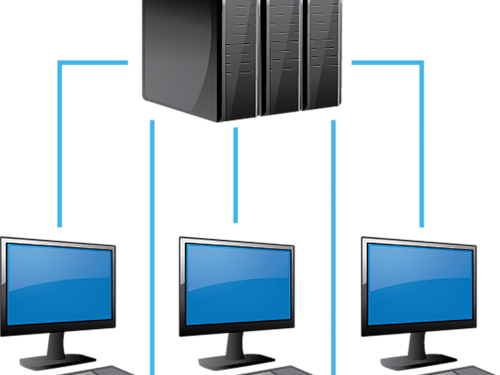With the vast amount of businesses small, medium, and large utilizing virtualization in the workplace, there’s no reason why your company shouldn’t take advantage of this technology to save money, go mobile, and get secure.
Virtualization is a current staple in major corporations, allowing for improved data backup and easier disaster recovery. What many entrepreneurs and small business owners fail to recognize, however, is that virtualization for small businesses is every bit as essential as its large corporation counterpart. From reductions in IT costs to improvements in workplace efficiency, virtualization has already transformed the small business world. By 2012, two thirds of small and mid-size businesses (SMBs) had already adopted virtualization, with an additional 14% expressing an interest in future implementation. At this point of the technology’s maturity in the marketplace, avoiding small business virtualization is wasting you valuable time and money.
Virtualization and Budgetary Concerns
Virtualization presents an immediate source of savings in the ability to forgo the long and costly process of setting up physical servers. Less physical infrastructure in your business environment also promotes long-term savings due to the ensuing reduction of maintenance costs.
Although some maintenance may still be necessary under a server virtualization model, this is far easier to deploy: IT management can be controlled from a single console remotely or within the office, cutting out the juggling of IT services that takes place under traditional server setups. You can also expect to see reductions in your office’s energy and cooling costs, which, for SMBs operating multiple physical servers, can add up quickly when you utilize virtualization for small businesses.
Once virtualization has been implemented, small business owners are encouraged to take further steps to continue to cut back on maintenance costs. Data storage represents a major cost concern for small businesses, but shared storage can serve as an excellent alternative for businesses lacking the infrastructure necessary even for the comparatively small virtualization storage load.
Joining the Mobile World
Businesses that fail to adapt to today’s mobile world risk ostracizing customers and clients who want the convenience of constant accessibility to your services. Small business owners worry about the added costs of mobile accessibility, but these can be minimized with the assistance of virtualization.
Mobile virtualization is particularly useful in the “bring-your-own-device” (BYOD) workplace where employees utilize their own mobile devices, laptops, and other equipment. A typical mobile virtualization approach for BYOD businesses involves containerization, which offers employees access to streamlined apps, while restricting their ability to access or edit sensitive data. Thus, through containerization, SMB’s mobile security concerns can easily be appeased.
Security for Small Businesses
Small businesses often cannot afford to implement and maintain reliable security measures. Virtualization offers several viable opportunities for cost-effective security by limiting browsing to virtual environments lacking access to sensitive information. This concept is often referred to as isolation. Experts recommend that small businesses of limited means isolate virtual networks from one another, as well as from the physical network.
Virtualization also allows small business leaders to test security updates prior to system deployment. This process highlights unforeseen interactions between server components, thus preventing potential bugs from occurring after the system goes live.
Virtualization is quickly becoming the status quo in the small business world, with an impressive 63% of companies virtualizing a minimum of 75% of their servers in 2012. Scale stands at the forefront of this revolution, eager to implement and maintain virtualization for small businesses. Contact Scale for more information about server virtualization and learn how we can reliably and affordably handle your company’s complex business IT needs.



